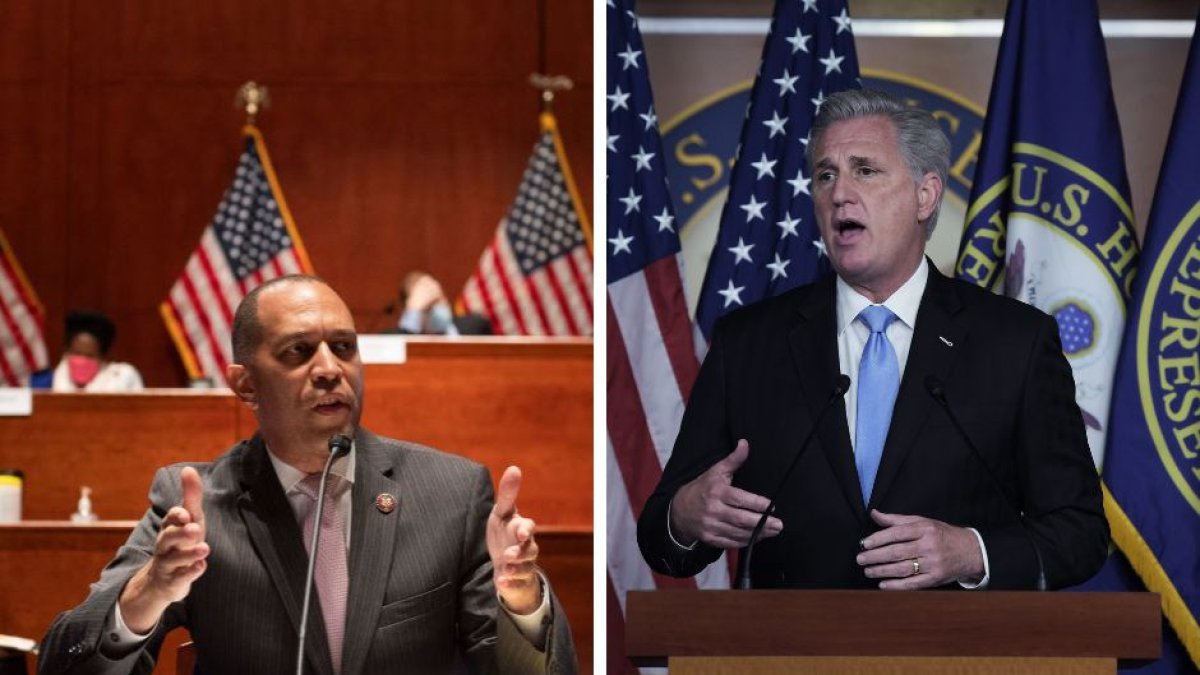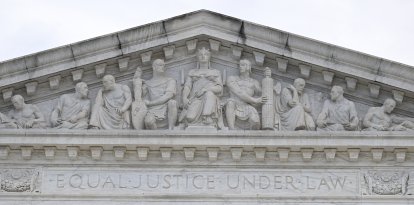What if the Speaker of the House ends up being a Democrat?
McCarthy does not have the 218 votes needed to win the speakership, although the voting system on the floor could allow his investiture... and even the election of Hakeem Jeffries.

(Cordon Press).
Although the math - and some 14 confirmed Republican representatives - point against the election of Kevin McCarthy as Speaker of the House on the first ballot, the House election system gives him a remote chance of getting it done... and even of having a Democratic representative elected. All this on the 100th anniversary of the last time a president required more than one vote (1923) to reach office.
First, to be the Speaker of the House, 218 votes (half plus one) of the 435 total representatives are needed. After the November midterms, the Republicans have 222 seats, to 213 for the Democrats (212 effective, after the death of the newly elected Donald McEachin, which is vacant). On the surface, McCarthy should have four votes to spare... but in reality he is one vote short. Since he was chosen as a candidate for the post in a closed-door meeting among Republican representatives, five conservative congressmen announced that they would not grant him their vote in any case. They were joined last Sunday by nine others who had declared themselves undecided until then.
At least 14 Republicans announce their "no" to McCarthy
However, the voting system gives the Californian a slight chance. The representatives do not have to choose any of the official candidates, but need only say "present" and the required quorum is reduced proportionally - for example, Nancy Pelosi was elected with less than those 218 votes. In this case, should enough (or too many) Republican members abstain, it could even be that Democrats, who it is presumed will vote as a bloc for Hakeem Jeffries, Pelosi's newly elected replacement, could even win the seat.
Representatives may also nominate other persons outside the official nominations. In fact, they can even nominate people who are not representatives for the position of second in line to succeed the President of the Government. For example, Joe Biden himself , Donald Trump, and even Republican Senator Rand Paul received votes in previous elections. In this case, according to the New York Post, someone is expected to nominate Andy Biggs as an alternative to McCarthy. The gamble, according to these sources, would remain as long as the chosen one still needs 218 votes or the Conservatives reach an agreement.
Individual and voice vote
Once the presidents of each party in the House announce the name of their candidate, the secretary chooses several congressmen who will be in charge of the recount. Voting is done individually and loudly, some people even stand up or shout to give more emotion or solemnity to the act. Each one of the 435 (434 in this case) representatives must proclaim the name of their chosen one. This causes the session to be very long and dramatically increases the tension for the recount, while allowing the last to announce their decision to change the direction of their decision. Some of McCarthy's supporters have already indicated that their commitment to him will stay in place as long as he is able to get the necessary majority.
In the event that there is no winner, the secretary shall have the roll call vote repeated until a candidate obtains the required number of votes. However, there may be recesses, known as floor fights, in which the parties meet and renegotiate support or concessions in order to reach an agreement. If no one gets enough support, and even days of voting and discussions pass, the members of the House may pass a resolution by which the candidate who gets the highest number of votes will be the president. This occurred in 1856 for the inauguration of Nathaniel Banks, with 133 votes after two months. It is difficult for the Republicans to accept this, since it would multiply the chances of Jeffries being the next speaker.
Rebels rely on a consensus candidate
The usual rule, however, has been election by first ballot. Interestingly, the 2023 vote comes on the 100th anniversary of the last occasion when it took several attempts to elect a president. That was in 1923, when Republican Frederick Gillett won re-election on the ninth ballot.
According to the NY Post, fractious Republicans are banking on the emergence of a consensus candidate. "I think you’ll see on the second ballot an increasing number of members vote for a true candidate who can represent the conservative center of the conference, can motivate the base," said Bob Good, one of the representatives of "Never Kevin" said to Fox News. Matt Gaetz, another leader of this group, suggested that he will nominate former President Trump (who showed his support for McCarthy) and Rep. Jim Jordan.
Why is the figure of the President of the Chamber fundamental?
The election of the president is fundamental for the Chamber to be able to function. The president is not only the moderator of the sessions (something that he usually delegates to another representative of his party on a day-to-day basis), but he is also the administrative head of the institution. In this regard, the president is in charge of appointing and supervising the non-elected staff of the Chamber, such as the historian, the general counsel, the inspector general, the sergeant-at-arms, the secretary, the chief administrative officer and the chaplain of the Chamber.
In addition, it is their responsibility to establish and control the voting schedule in the chamber. They usually coordinates with Senate leadership and (when appropriate) the White House.

























